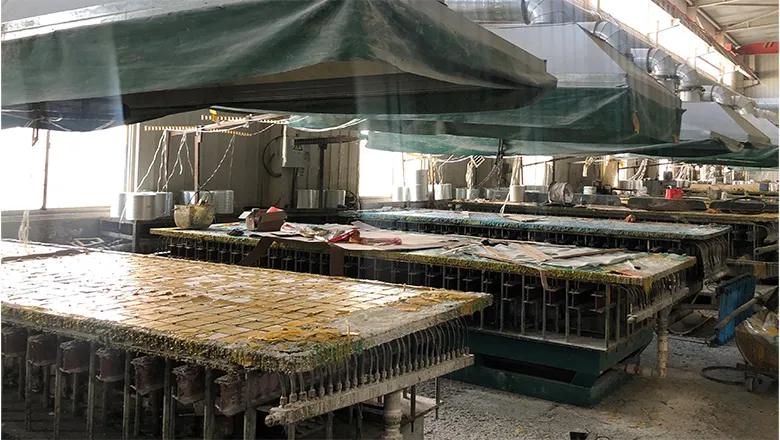loading...
- No. 9, Xingyuan South Street, Dongwaihuan Road, Zaoqiang County, Hengshui, Hebei, China
- admin@zjcomposites.com
- +86 15097380338
- Welcome to visit our website!
Exploring the Benefits and Features of Home Water Softener Systems for Improved Water Quality
Understanding Water Softener Systems Benefits and Importance
Water hardness is a common issue faced by many households and businesses, caused primarily by high levels of calcium and magnesium salts present in the water supply. Such hard water can lead to a host of problems, including scale buildup in pipes and appliances, decreased soap efficiency, and skin irritation. To combat these issues, water softener systems have gained popularity as an effective solution.
What is a Water Softener System?
A water softener system is a treatment device designed to reduce the hardness of water, resulting in soft water. The most common method employed in water softening is ion exchange, where calcium and magnesium ions are replaced with sodium or potassium ions. This process not only helps to mitigate the effects of hard water but also extends the lifespan of plumbing fixtures and water-using appliances.
Benefits of Using a Water Softener System
1. Improved Appliance Efficiency Hard water can cause scale buildup in appliances like dishwashers, water heaters, and washing machines. By using a water softener, you can improve the efficiency of these appliances, helping them operate more effectively and reduce energy costs.
2. Enhanced Cleaning Soft water allows soaps and detergents to lather better, which results in cleaner dishes, laundry, and surfaces. With soft water, there’s less soap scum and mineral buildup, making cleaning easier and more effective.
3. Healthier Skin and Hair Hard water can leave skin feeling dry and hair looking dull. Soft water, on the other hand, is gentler on the skin and hair, leading to increased hydration and improved texture. Many users report a noticeable difference in their skin and hair quality after switching to soft water.
4. Reduced Scale Buildup Using a water softener can significantly reduce scale buildup in pipes and fixtures. This reduction leads to fewer clogs and prolongs the lifespan of plumbing systems, ultimately saving on costly repairs and replacements.
water softener system

5. Environmental Benefits With soft water requiring lesser amounts of soap and cleaning products, not only do households save money, but they also reduce their overall environmental impact. Less soap means less harmful chemicals entering the water supply, promoting better ecology.
Types of Water Softener Systems
There are several types of water softener systems available in the market today
- Salt-Based Water Softeners These are the most common type, utilizing ion exchange with sodium. They require regular maintenance, including the addition of salt.
- Salt-Free Water Softeners These systems use a different method, such as catalytic media, to condition water without removing the minerals. While they don’t technically soften water, they help prevent scale buildup.
- Dual-Tank Water Softeners These systems have two tanks, allowing one to regenerate while the other is in use, ensuring a continuous supply of soft water.
Conclusion
Investing in a water softener system can yield numerous benefits for both residential and commercial environments. From improved appliance efficiency and enhanced cleaning to healthier skin and hair, the advantages are compelling. Additionally, with various options available on the market, individuals and businesses can choose the system that best suits their specific needs and preferences.
In summary, a water softener not only makes a substantial difference in the quality of water we use daily but also contributes to long-term savings and sustainability. As we increasingly recognize the importance of water quality in our lives, the adoption of water softener systems will continue to rise, providing refreshing and impactful benefits.
-
the-expansive-industrial-reign-of-frp-pressure-vesselsNewsAug.22,2025
-
manufacturing-premium-frp-square-pipes-for-global-wholesale-excellenceNewsAug.22,2025
-
strategic-applications-for-frp-grating-solutionsNewsAug.22,2025
-
material-science-forging-grp-water-tank-longevityNewsAug.22,2025
-
the-engineered-excellence-material-science-behind-frp-railing-systemsNewsAug.22,2025
-
how-digital-pultrusion-revolutionizes-frp-profile-wholesalingNewsAug.22,2025
-
The Rise of FRP Profiles: Strong, Lightweight, and Built to LastNewsJul.14,2025
